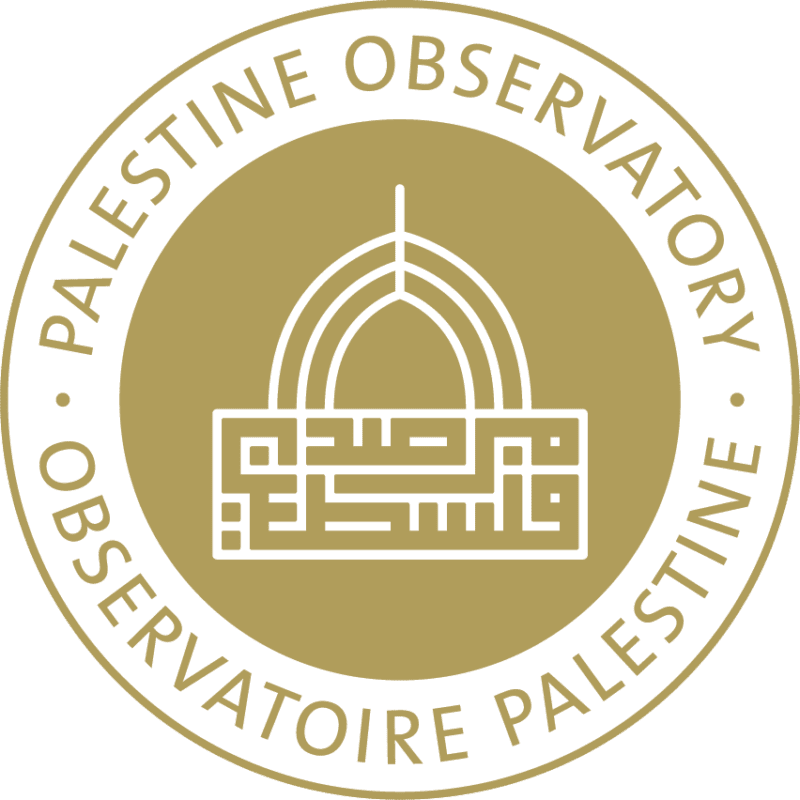Israeli Occupation Forces Demolish 23 Homes and 4 Shops in the West Bank

July 16, 2024
Israel is working to make the catastrophic situation in the Gaza Strip a “de facto policy” engaging in a regular, coordinated daily act that it imposes with regular brutality that has increased with its military aggression against the Gaza Strip. The Israeli occupation forces are also committing the same crimes more than once, periodically and simultaneously, under many pretexts to apply continuous pressure on cities and villages of the West Bank. Measuring daily crimes over the past period shows a special, agreed-upon arrangement, taking place with clear cooperation and coordination between the Israeli forces and Israeli settlers.
During the period from 9 to 15 July 2024, the Organization of Islamic Cooperation Media Observatory documented 23 massacres, the most prominent of which was in a camp for displaced people in the Al-Mawasi area, the Abu Oreiban School in Nuseirat in central Gaza, and a prayer hall in the al-Shatee refugee camp, west of Gaza, in addition to those killed in the Shujaiya neighborhood. The toll of murdered and wounded during this period marked the highest during the month of July 2024, which reflects a steady pace of deliberate mass killings since the start of the Israeli war, which affects the displaced people in places that Israel described as safe. The number of murdered for this week reached 474 and 1,287 wounded. From October 7, 2023, to July 14, 2024, the total number of murdered reached 39,158.
Palestinian sources reported that Israeli forces destroyed more than 85% of the residential buildings in the Shujaiya neighborhood, which had become a disaster area unfit for habitation.
Along with the direct genocide, United Nations human rights experts noted that famine spread throughout the Gaza Strip, with widespread deaths among children due to chronic malnutrition.
In occupied al-Quds, what was initially an exceptional and isolated incident—the storming of the blessed Al-Aqsa Mosque—has now become routine and daily behavior for extremists and the Israeli occupation forces. The toll of crimes also increases by category at specific times and concurrently across multiple villages and cities in the West Bank.
Over the aforementioned period, the settlers burned agricultural lands and trees owned by Palestinians in the villages of Hebron, Ramallah, Jenin, Nablus, and Tubas. The occupation forces and settlers also bulldozed agricultural lands and fruit trees in the villages of Jericho, Salfit, Nablus, Ramallah, and Tulkarm, in addition to burning and destroying 7 farmsteads, rooms, and agricultural barns in both Hebron and Ramallah, as well as, uprooting 120 fruit trees in Hebron and bulldozing dozens of dunams bearing fruit trees.
The Israeli forces simultaneously confiscated chemical fertilizers from commercial stores in Ramallah, Tulkarm, Qalqilya, Salfit, Jericho, and Hebron.
In the hot summer, when the need for water increases, settlers damaged water valves supplying villages west of Nablus, and a water line supplying the village of “Umm Al-Khair” in Hebron. The Israeli forces also confiscated a well rig and destroyed an artesian well in Tubas.
In terms of direct commercial damage, the Israeli occupation forces destroyed a building materials store and a car lubricant shop in Bethlehem, demolished a horse stable in Jericho, and a school in Hebron, and confiscated a lathe in the same city. They burned a bulldozer and confiscated others in Nablus.
The number of settler attacks during July 9-15, 2024 reached 44 attacks that included various cities in the West Bank, in addition to multiple settlement activities, the most prominent of which was the confiscation of 65 dunums to build a settlement outpost in Nablus, and the confiscation of 1.7 dunums in Salfit in order to supply water to the “Novim” settlement close to the Palestinian village of “Deir Istiya”. The Israelis also bulldozed cultivated lands to extend sewage pipes to the “Ammanuel” settlement and erected 5 caravans, a settlement room, and a tent on the land of the “Irtas” village and the villages of Hebron and “Jaba’at” to establish settlement outposts.
The occupation forces also closed the only open roof in the Ibrahimi Mosque in the city of Hebron in order to restrict worshipers.
The Israeli occupation forces demolished 23 houses in al-Quds, Bethlehem, Tulkarm, Nablus, Qalqilya, Jericho, and Hebron. They also forcibly seized two houses in the Old City of Hebron, while the number of Israeli violations and crimes during the period documented by the OIC’s Observatory reached 2542 crimes in one week, from various categories, ranging from blocking roads to acts of genocide.
